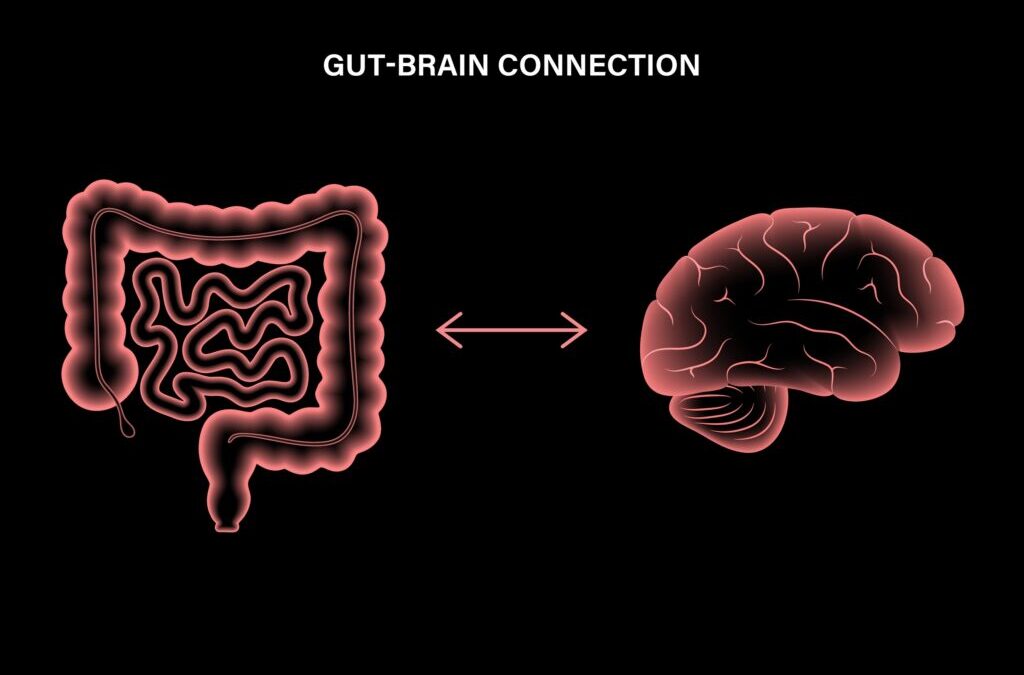In recent years, science has uncovered a powerful connection between two seemingly distant organs: the gut and the brain. What was once considered a niche topic has become one of the most exciting frontiers in modern medicine—known as the gut-brain axis.
At Better Health Primary Care, we believe in treating the whole person, not just isolated symptoms. And understanding how your digestive health shapes your emotional well-being is a critical part of that approach.
What Is the Gut-Brain Axis?
The gut-brain axis refers to the intricate communication network between your gastrointestinal tract and your central nervous system. This connection is made possible through a variety of pathways, including:
-
The vagus nerve, a major nerve connecting the gut and brain
-
Hormonal signaling and neurotransmitters produced in the gut
-
The immune system, which plays a role in both digestion and mood regulation
-
The gut microbiome—trillions of bacteria and microbes that live in your intestines
It’s now known that the gut produces over 90% of the body’s serotonin, the “feel-good” chemical that plays a key role in mood, sleep, and appetite. In short: your gut isn’t just digesting your food—it’s influencing how you feel, think, and function.
How Digestive Health Influences Mental Health
1. Microbiome Imbalance and Mood Disorders
When the gut’s bacterial balance is disrupted (a condition known as dysbiosis), it can trigger inflammation, weaken your intestinal barrier, and interfere with the production of important brain chemicals. This has been linked to:
-
Depression and anxiety
-
Increased stress reactivity
-
Brain fog and low energy
-
Sleep disturbances
Ongoing research suggests that treating gut issues may help alleviate some symptoms of these conditions—especially when traditional mental health treatments fall short.
2. Inflammation: A Common Thread
Chronic inflammation in the gut can activate the body’s immune system and affect brain chemistry. Inflammatory molecules (called cytokines) may impair mood regulation and reduce brain plasticity—key factors in depression and cognitive decline.
This explains why some individuals report mood improvements after addressing GI symptoms or adopting anti-inflammatory diets.
Stress and the Gut-Brain Cycle
Chronic stress doesn’t just affect your mind—it directly alters the gut. Stress can change gut motility, increase intestinal permeability (“leaky gut”), and shift the balance of the microbiome.
And it works both ways: a disrupted gut microbiome can send distress signals back to the brain, heightening anxiety or emotional instability. This creates a loop where digestive and mental health challenges fuel one another.
That’s why we always encourage patients to prioritize preventive care. If you’ve been ignoring subtle gut issues or unexplained mood changes, now is a great time to reconnect with your physician. Learn more in our related article:
Why Regular Check-Ups with Your Primary Care Doctor Matter More Than Ever ›
Signs Your Gut May Be Affecting Your Mood
You may not realize that your gut health is contributing to your emotional or cognitive state. Common signs include:
-
Frequent bloating, gas, or constipation
-
Food sensitivities or unexplained digestive discomfort
-
Cravings for sugar or carbs
-
Low mood, irritability, or anxiety without clear cause
-
Feeling mentally “foggy” or easily fatigued
These symptoms may seem minor on their own—but together, they suggest an imbalance that deserves attention.
Supporting a Healthy Gut-Brain Connection
Here are some evidence-backed ways to strengthen your gut—and in turn, support your mood:
1. Eat a Microbiome-Friendly Diet
Focus on whole, fiber-rich foods such as vegetables, legumes, and whole grains. Fermented foods like kefir, yogurt, kimchi, and sauerkraut can also support healthy bacteria. Avoid processed foods and excess sugar, which can disrupt microbial balance.
2. Exercise Regularly
Physical activity boosts both gut motility and mental health. Even a 30-minute daily walk can make a difference in microbiome diversity and stress levels.
3. Prioritize Sleep
Gut bacteria have circadian rhythms just like we do. Poor sleep disrupts their function—and your mood. Aim for 7–9 hours per night, ideally on a consistent schedule.
4. Manage Stress Effectively
Chronic stress is one of the most powerful disruptors of gut health. Techniques like breathwork, meditation, nature walks, or simply building in downtime can help calm the gut-brain axis.
5. Check in With Your Doctor
Because gut-brain issues are so interconnected, it’s vital to work with a physician who understands both the science and the personal side of health. Your doctor can help evaluate GI symptoms, order appropriate tests, and guide you toward long-term solutions.
Your Next Step Toward Whole-Body Health
At Better Health Primary Care, we understand that your gut and brain don’t operate in isolation. If you’re dealing with chronic digestive symptoms, low mood, or both, you don’t have to navigate it alone. Together, we can uncover what’s happening beneath the surface and build a plan that restores balance—both physically and emotionally.
👉 Schedule an appointment with our team today ›
Let’s get your health—and your life—back on track.

